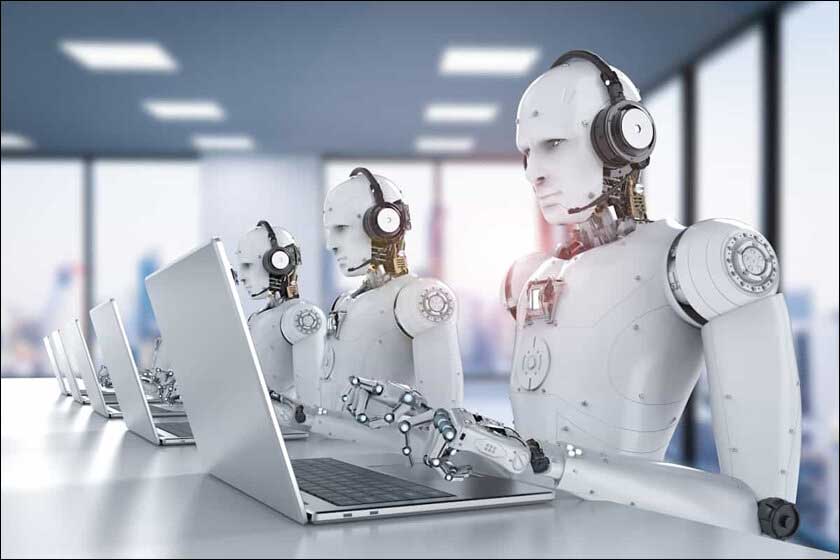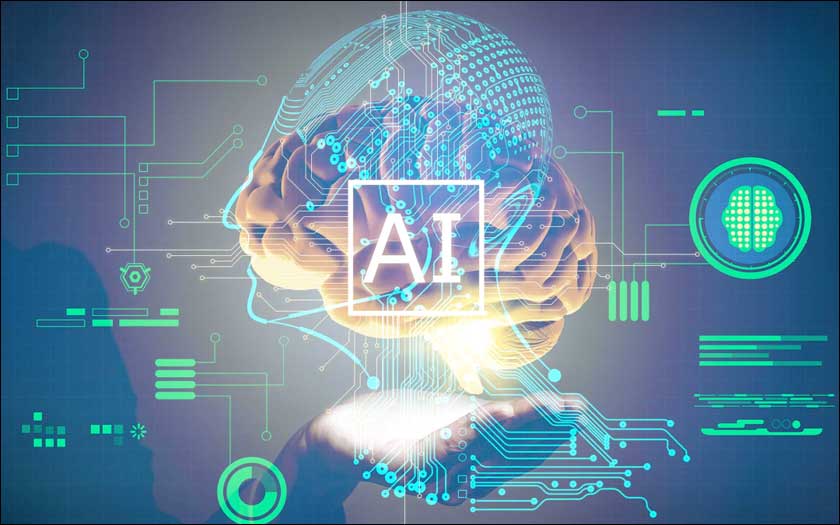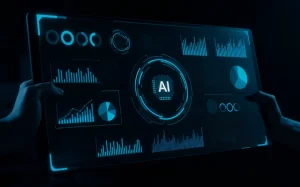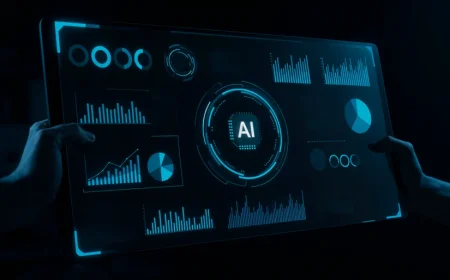From process automation to personalized customer experiences, AI offers a myriad of benefits that businesses can leverage to stay competitive in today’s fast-paced environment.
Artificial Intelligence (AI) has become an indispensable component of the contemporary landscape, offering a plethora of benefits, especially to businesses undergoing digital transformation. To fully capitalize on AI’s potential in this realm, it’s imperative for businesses to delve into its roles and keep abreast of the latest trends. Understanding the pivotal role AI plays in business IT architecture, we’ve curated this piece to illuminate real-world AI applications, their impacts, and the trends essential for maximizing business opportunities.
In today’s fast-paced environment, digital transformation (DX) isn’t merely a trend but a prerequisite for thriving in the competitive market and facilitating seamless user experiences with minimal effort. Many assert that AI serves as a catalyst for digital transformation, enhancing its efficacy and outcomes.

AI has been instrumental in reshaping business operations, ranging from image and video analytics empowered by computer vision trends to innovative solutions like ChatGPT, which foster creativity and productivity. The evolution of AI continues unabated, with its adoption witnessing a steady rise.
According to a Statista survey, the AI market is projected to reach USD 305.90 billion by 2024 and is expected to soar to USD 738.80 billion by 2030, exhibiting a compound annual growth rate (CAGR) of 15.38%.
Acknowledging AI’s potential, technology enthusiasts hail it as the cornerstone of digital transformation. But is AI truly indispensable for digital transformation? Can it serve as a strategic imperative for businesses navigating the digitalization journey? These questions aren’t mere ponderings; they represent gateways to AI-driven digital transformation, crucial for business prosperity.
So, how does AI contribute to digital transformation? Let’s delve into the specifics.
AI’s Contributions to Digital Transformation:
Digital transformation entails integrating diverse digital technologies to forge an interconnected ecosystem that enhances organizational efficiency, collaboration, and innovation. When AI is integrated into these digital solutions, processes, strategies, and customer interactions, it catalyzes AI-driven digital transformation.
According to an Accenture survey, approximately 13% of AI innovators have well-established AI strategies but are still exploring use cases, while a mere 12% of companies have extensively leveraged AI in their digital transformation endeavors, yielding significant returns on investment (ROI).
Hence, it’s imperative to discern the applications of AI or AI technology trends for digital transformation and how they contribute to business success.

Process Automation:
In today’s dynamic business landscape, process automation is a godsend, minimizing efforts in repetitive, mundane tasks. Contrary to fears of AI replacing human roles, it brings numerous benefits, foremost among them being process automation.
Businesses can deploy Robotic Process Automation (RPA) solutions such as bots to automate rule-based, repetitive tasks, liberating human resources to focus on strategic initiatives. These RPA-driven tasks encompass data entry, invoice processing, payroll management, customer support streamlining, inventory management, and more.

The use of AI and ML in business processes gives employees an additional hand to maximize their time through process automation, not merely in terms of speeding up efforts in digital transformation.
Data Analytics and Personalized Customer Experience:
Data is hailed as the new currency, facilitating informed decision-making and future planning. AI plays a pivotal role in harnessing the power of data for advanced analytics, insights, automation, and enhancing customer experiences.
Predictive analytics is the process of using artificial intelligence (AI) to automatically analyze past data, spot patterns and trends, and take appropriate action to improve future results and gain a competitive advantage.
Recommendation engines Machine learning models that continuously analyze data in real time, offer suggestions, and even take action in response to pre-established guidelines or discovered trends in order to enhance the user experience of your digital service platforms.
Customer Sentiment Analysis Artificial intelligence (AI) examines sentiment and feedback from a variety of sources to provide organizations insights into the thoughts and inclinations of their customers. These insights may then be used to improve brand marketing and service offerings.
AI-Powered Customer Support:
Customer support is paramount for fostering customer loyalty and satisfaction. AI-powered chatbots, equipped with Natural Language Processing (NLP) and machine learning capabilities, enable businesses to offer seamless user experiences round the clock, irrespective of their workload.
Whichever sector your company belongs to, you may improve customer experience by creating and integrating an AI-powered chatbot, such as Replika, on your website, digital platforms, or internal ERP. In order to provide consumers with enhanced engagement experiences akin to speaking with real executives, these chatbots are equipped with natural language processing (NLP), data analysis, speech recognition, machine learning, conversation management, and generative AI with RAG (Retrieval Augmented Generation) capabilities.

You may smartly step up your digital transformation game by integrating AI chatbots into your digital platforms, such as websites and online platforms.
Generative AI
Generative AI tools like ChatGPT have revolutionized content creation and ideation, offering unprecedented capabilities to users. Businesses leveraging generative AI can boost productivity and creativity significantly.
Productivity may be increased by 40% for skilled users that understand how to apply generative AI appropriately for different company procedures.
Businesses may increase productivity and concentrate more on business by developing autonomous AI agents, multi-modal virtual assistants and customer care, automated content production, conversation intelligence, and several other unique Generative AI solutions.
Computer Vision:
Computer vision finds applications across various industries, from healthcare and real estate to finance and security. Leveraging machines’ ability to interpret visual information, organizations can automate visual-based tasks and enhance work efficiency.
Computer vision may be used by insurance companies for risk management, claims processing, and item damage assessment.
Customers may identify food ingredients, their nutritional values, and other information that might support their diet by using computer vision, which is a tool used by the food and fitness industries.
The Future of AI in Digital Transformation:
Looking ahead, AI’s role in digital transformation is poised to reshape the business landscape profoundly. Hyper-personalization, streamlined operations, accelerated software development lifecycles, enhanced collaboration, and eco-friendly solutions are among the myriad avenues AI will explore in the digital transformation journey.
In essence, businesses that harness AI’s full potential will not only thrive amidst digital transformation but also spearhead innovation in their respective domains. Businesses will use AI to optimize processes across supply chain logistics and consumer relations.

Businesses will be able to automate and optimize the software development lifecycle for quick prototyping, development, and integration-including testing and proactively identifying issues and opportunities to enhance app performance-by leveraging the power of generative AI.
AI will grow into an ideas and development accelerator. Working together with people may help them become more creative, efficient, and successful in solving problems in a variety of fields.
AI will be the main driver behind the development of environmentally friendly solutions, from minimizing environmental effect to optimizing energy use.
To put it succinctly, companies who fully utilize AI will not only prosper in this rapidly changing environment, but also open up new avenues for their particular sectors.
In wrapping up, this article has explored the indispensable role of Artificial Intelligence (AI) in driving digital transformation across various sectors. From process automation to personalized customer experiences, AI offers a myriad of benefits that businesses can leverage to stay competitive in today’s fast-paced environment.
As we continue to witness the exponential growth of the AI market, it’s crucial for businesses to understand the specific contributions AI can make to their digital transformation journey. Whether it’s harnessing data analytics for insights or deploying AI-powered chatbots for customer support, the potential for innovation and efficiency gains is vast.
Looking ahead, AI is poised to reshape the business landscape even further, enabling hyper-personalization, streamlined operations, accelerated software development lifecycles, enhanced collaboration, and eco-friendly solutions. Businesses that fully embrace AI will not only thrive amidst digital transformation but also lead the way in innovation within their respective industries.
However, no article is complete without the valuable input from our readers. We invite you to share your feedback and comments on how AI has impacted your organization’s digital transformation efforts or any insights you have on the future of AI in driving innovation. Your contributions are instrumental in shaping the conversation around AI-driven digital transformation. Thank you for reading, and we look forward to hearing from you!










1 Comment
“Hi Dinesh”
“Great post! I found your insights on The Role of AI in Driving Digital Transformation really helpful.”
“Thanks for sharing!”